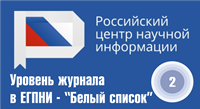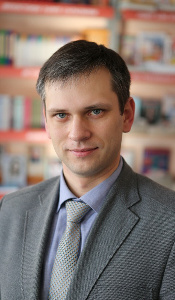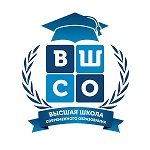ОПИСАНИЕ ОБРАЗОВАТЕЛЬНЫХ РЕЗУЛЬТАТОВ ПОДГОТОВКИ БУДУЩИХ УЧИТЕЛЕЙ ФИЗИКИ К ИССЛЕДОВАТЕЛЬСКОЙ ДЕЯТЕЛЬНОСТИ
Аннотация
В статье актуализирована проблема формирования проектных и исследовательских умений в процессе вузовской подготовки учителя физики, обусловленная требованиями по созданию сквозной траектории формирования исследовательских компетенций. Предметом анализа выступают проектные и исследовательские умения, определяющие образовательные результаты подготовки будущих педагогов к исследовательской деятельности.
Цель исследования состоит в определении содержания образовательных результатов подготовки будущих учителей физики к исследовательской деятельности и в разработке формы представления сквозной траектории формирования проектных и исследовательских умений.
Методология проведения работы. В качестве методологических ориентиров исследования выступали системный, деятельностный, компетентностный и междисциплинарный подходы. Использовались методы: анализ, синтез, обобщение, конкретизация, классификация.
Результаты. Выделенные группы образовательных результатов подготовки будущих педагогов к исследовательской деятельности представлены в виде проектных и исследовательских умений, лежащих в основе научно-исследовательской деятельности. В качестве основания для выделения групп выступали: методология научного исследования; технологические основы осуществления научно-исследовательской деятельности; проектирование образовательного продукта; проверки его реализации на практике; профессионально значимые личностные качества педагога.
Область применения результатов. Предложенная форма представления сквозной траектории формирования проектных и исследовательских умений в виде учебного модуля позволяет осуществлять отбор учебных дисциплин, специальных курсов, в том числе практик в процессе подготовки будущего учителя к исследовательской деятельности.
Информация о спонсорстве. Публикация подготовлена в рамках выполнения государственного задания Министерства просвещения Российской Федерации № 073-00024-03 от 09.04.2024 на выполнение научно-исследовательской работы по теме «Модель подготовки учителя физики к обучению учащихся в системе предпрофильного и предпрофессионального инженерного образования».
Скачивания
Литература
Список литературы
Акбаева М.Д. Понятие «исследовательская компетентность» в педагогической теории // Педагогический журнал. 2016. Т. 6. № 6А. С. 268-282.
Белолипецкая А.С. Специфика формирования исследовательских компетенций у студентов – будущих педагогов с использованием метода проектов // Преподаватель высшей школы: традиции, проблемы, перспективы.
Материалы XI Всероссийской научно-практической internet-конференции (с международным участием). Изд-во: издательский дом "Державинский". 2020. С. 111-115. URL: https://tsutmb.ru/nauka/internet-konferencii/2020/09112020_prepodavatel/4/Belolipeckaya.pdf (дата обращения: 01.02.2024)
Битибаева Ж.М. Формирование исследовательских умений будущих учителей физики в условиях реализации практико-ориентированного подхода к обучению: Диссертация на соискание степени доктора философии (PhD). Республика Казахстан Алматы, 2020. 113 с.
Ефричева О.Ю. Сущность и содержание исследовательской компетенции / О.Ю. Ефричева, И.В. Мельник, В.С. Михайлюкова // Наука и образование: отечественный и зарубежный опыт педагогика. 2021. № 1. С. 189-192.
Зиньковский К.В. «Физики» и «лирики», столицы и регионы: что происходит со спросом на высшее образование // Мониторинг качества приема в вузы. НИУ ВШЭ. Институт образования НИУ ВШЭ, 2023. URL: https://school.lanbook.com/pluginfile.php/212026/mod_page/intro/Зиньковский_СпросВО.pdf (дата обращения: 01.04.2024)
Итоги конференции молодых исследователей образования // XXII Международная научно-практическая конференция молодых исследователей образования «Наставничество в педагогической и научной деятельности: исследования и практики». МГППУ, 2-3 ноября 2023 года. URL: https://mgppu.ru/news/13330 (дата обращения 29.03.2024).
Калинина Н.В. Формирование исследовательской компетенции у будущих педагогов в образовательном процессе колледжа / Н.В. Калинина, В. Цыганкова // Международный научно-исследовательский журнал. 2023. № 9 (135). https://doi.org/10.23670/IRJ.2023.135.55
Концепция подготовки педагогических кадров для системы образования до 2030 г. // Распоряжение Правительства Российской Федерации от 24.06.2022 г. № 1688-р. URL: https://legalacts.ru/doc/rasporjazhenie-pravitelstva-rf-ot-24062022-n-1688-r-ob-utverzhdenii/ (дата обращения: 01.02.2024)
Кузьмина Н.В. Профессионализм педагогической деятельности: Метод. Пособие / Н. В. Кузьмина, А. А. Реан; Междунар.акад. акмеол. наук, НИИ проф.-техн. образования, Науч.-исслед.- центр развития творчества молодежи. СПб.: Рыбинск, 1993. 54 с.
Личак Д.А. Куда исчезают учителя физики? URL: https://vogazeta.ru/articles/2023/11/2/quality_of_education/24031-kuda_ischezayut_uchitelya_fiziki (дата обращения: 01.03.2024)
Перевощикова Е.Н. Образовательные результаты в подготовке бу-дущего педагога и средства оценки их достижения // Вестник Мининского университета. 2022. URL: https://vestnik.mininuniver.ru/jour/article/view/1325 (дата обращения: 06.01.2023)
Пирожкова О.Б., Бубнова И.С. Исследовательская компетентность педагога: сущность и диагностика // Педагогическая перспектива. 2022. № 1(5). С. 3-9.
Портрет педагога. Основа моделирования образовательных про-грамм: Коллективная монография. Нижегородский государственный педагогический университет им. К. Минина, 2017. 202 с.
«Приоритет 2030»: нацпроект «Наука и университеты». URL: https://priority2030.ru/news/prioritet-2030-nabiraet-kan (дата обращения 29.03.2024).
Федоров О.Д., Казакова Е.И., Сатановская Е.М. Эволюция педагога: новый ролевой набор // Образовательная политика. 2019. № 3 (79). С. 76-87. URL: https://edpolicy.ranepa.ru/pedagogical-professionalism (дата обращения: 12.02.2024).
Шкерина Т.А. Формирование исследовательской компетенции бу-дущих бакалавров - педагогов-психологов в вузе: дис. … канд. пед. наук. Красноярск, 2013. 237 с.
Diery A., Knogler M., Seidel T. Supporting Evidence-Based Practice Through Teacher Education: A Profile Analysis of Teacher Educators’ Perceived Challenges and Possible Solutions // International Journal of Educational Research Open. 2021. Vol. 2. No. 2. https://doi.org/10.1016/j.ijedro.2021.100056
Diery A., Vogel F., Knogler M., Seidel T. Evidence-Based Practice in Higher Education: Teacher Educators’ Attitudes, Challenges, and Uses // Frontiers in Education. 2020. Vol. 5:62. https://doi.org/10.3389/feduc.2020.00062
Gijbels D. Effects of Problem-Based Learning. A Meta-Analysis From the Angle of Assessment / D. Gijbels, F. Dochy, P. van den Bossche // Review of Educational Research. 2005. Vol. 75 (1). P. 27-61. https://doi.org/10.3102/00346543075001027
Slavin R.E., Cheung A.C., Zhuang T. How Evidence-Based Reform Could Advance Education // ECNU Review of Education. 2021. P. 1-18. https://doi.org/10.1177/2096531120976060
Schmidt H. G. Problem-Based Learning is Compatible with Human Cognitive Architecture / H. G. Schmidt, Sofie M. M. Loyens, T. van Gog // Educa-tional psychologist. 2007. Vol. 42 (2). P. 91-97. https://doi.org/10.1080/00461520701263350
References
Akbayeva M.D. The concept of “research competence” in pedagogical theory. Pedagogical Journal, 2016, vol. 6, no. 6А, pp. 268-282.
Belolipetskaya A.S. Specificity of the formation of research competencies of stu-dents - future teachers using the method of pro-jects. Teacher of Higher School: tra-ditions, problems, prospects. Materials of XI All-Russian scientific-practical internet-conference (with international participation). Derzhavinsky Publ., 2020, pp. 111-115. URL: https://tsutmb.ru/nauka/internet-konferencii/2020/09112020_prepodavatel/4/Belolipeckaya.pdf (accessed 01.02.2024)
Bitibayeva J.M. Formation of research skills of future physics teachers in the conditions of realization of practice-oriented approach to teaching: Dissertation for the degree of Doctor of Philosophy (PhD). Republic of Kazakhstan Almaty, 2020, 113 p.
Efricheva O.Y. Essence and content of research compe- tence / O.Y. Efriche-va, I.V. Melnik, V.S. Mikhaylyukova. Science and education: domestic and foreign experience pedagogy, 2021, no. 1, pp. 189-192.
Zinkovsky K.V. “Physicists” and “lyricists”, capitals and regions: what hap-pens to the demand for higher education. Monitoring of the quality of admission to universities. Institute of Education of the National Research University Higher School of Economics, 2023. URL: https://school.lanbook.com/pluginfile.php/212026/mod_page/intro/Зиньковский_СпросВО.pdf (accessed 01.04.2024)
Results of the Conference of Young Researchers of Education. XXII Interna-tional Scientific and Practical Conference of Young Researchers of Education “Mentoring in Pedagogical and Scientific Activity: Research and Practice”. MGPPU, November 2-3, 2023. URL: https://mgppu.ru/news/13330 (accessed 29.03.2024).
Kalinina N.V. Formation of research competence in future teachers in the educational process of college / N.V. Kalinina, V. Tsygankova. International Research Journal, 2023, no. 9 (135). https://doi.org/10.23670/IRJ.2023.135.55
The concept of training pedagogical staff for the education system until 2030. Order of the Government of the Russian Federation from 24.06.2022 № 1688-r. URL: https://legalacts.ru/doc/rasporjazhenie-pravitelstva-rf-ot-24062022-n-1688-r-ob-utverzhdenii/ (accessed 01.02.2024)
Kuzmina N.V. Professionalism of pedagogical activity: Method. Manual / N.V. Kuzmina, A.A. Rean; International Acad. of Acmeol. sciences, Research Insti-tute of professional-technical education, Scientific-research center of youth creativity development. SPb.: Rybinsk, 1993, 54 p.
Lichak D.A. Where do physics teachers disappear? URL: https://vogazeta.ru/articles/2023/11/2/quality_of_education/24031-kuda_ischezayut_uchitelya_fiziki (accessed 01.03.2024).
Perevoshchikova E.N. Educational results in the training of future teacher and means of assessment of their achievement. Vestnik of Minin University, 2022. URL: https://vestnik.mininuniver.ru/jour/article/view/1325 (accessed 06.01.2023)
Pirozhkova O.B., Bubnova I.S. Research competence of a teacher: essence and diagnostics. Pedagogical prospect, 2022, no. 1(5), pp. 3-9.
Portrait of a teacher. The basis of modeling of educational programs: Collec-tive monograph. Nizhny Novgorod State Pedagogical University named after K. Minin, 2017, 202 p.
Priority 2030: national project ‘Science and Universities’. URL: https://priority2030.ru/news/prioritet-2030-nabiraet-kan (accessed 29.03.2024)
Fedorov O.D., Kazakova E.I., Satanovskaya E.M. Evolution of a teacher: a new role set. Educational Policy, 2019, no. 3 (79), pp. 76-87. URL: https://edpolicy.ranepa.ru/pedagogical-professionalism (accessed 12.02.2024)
Shkerina T.A. Formation of research competence of future bachelors - peda-gogues-psychologists in higher education. Krasnoyarsk, 2013, 237 p.
Diery A., Knogler M., Seidel T. Supporting Evidence-Based Practice Through Teacher Education: A Profile Analysis of Teacher Educators' Perceived Challenges and Possible Solutions. International Journal of Educational Research Open, 2021, vol. 2, no. 2. https://doi.org/10.1016/j.ijedro.2021.100056
Diery A., Vogel F., Knogler M., Seidel T. Evidence-Based Practice in Higher Education: Teacher Educators' Attitudes, Challenges, and Uses. Frontiers in Educa-tion, 2020, vol. 5:62. https://doi.org/10.3389/feduc.2020.00062
Gijbels D. Effects of Problem-Based Learning. A Meta-Analysis From the Angle of Assessment / D. Gijbels, F. Dochy, P. van den Bossche. Review of Educational Research, 2005, vol. 75 (1), pp. 27-61. https://doi.org/10.3102/00346543075001027
Slavin R.E., Cheung A.C., Zhuang T. How Evidence-Based Reform Could Advance Education. ECNU Review of Education, 2021, pp. 1-18. https://doi.org/10.1177/2096531120976060
Schmidt H. G. Problem-Based Learning is Compatible with Human Cog-nitive Architecture / H. G. Schmidt, Sofie M. M. Loyens, T. van Gog. Educational psychologist, 2007, vol. 42 (2), pp. 91-97. https://doi.org/10.1080/00461520701263350
Просмотров аннотации: 158
Copyright (c) 2024 Elena N. Perevoshikova

Это произведение доступно по лицензии Creative Commons «Attribution-NonCommercial-NoDerivatives» («Атрибуция — Некоммерческое использование — Без производных произведений») 4.0 Всемирная.





































